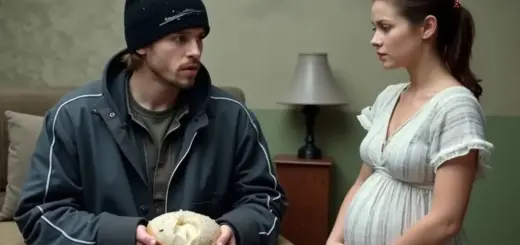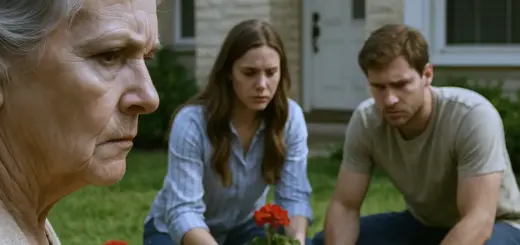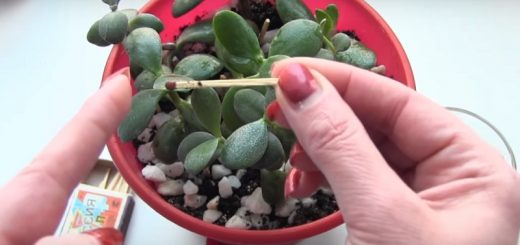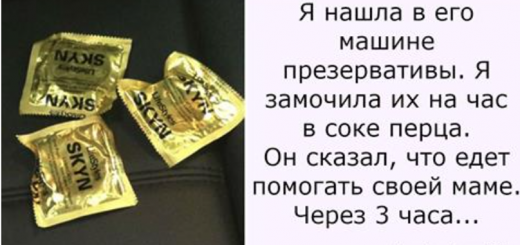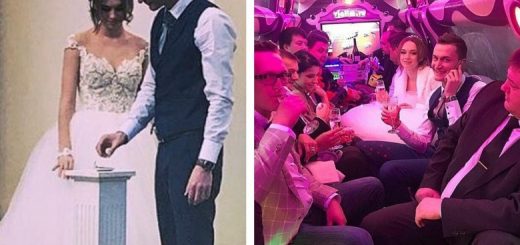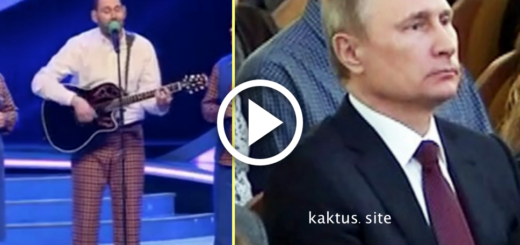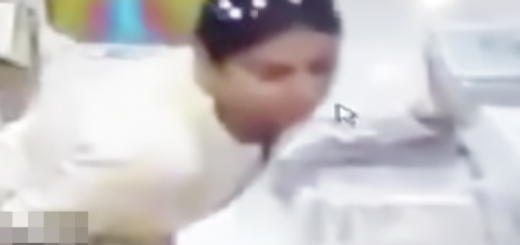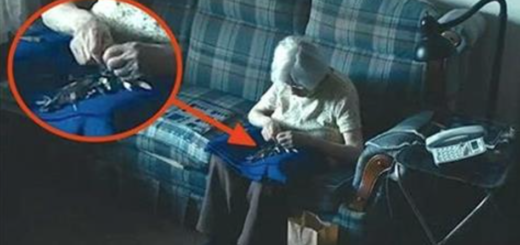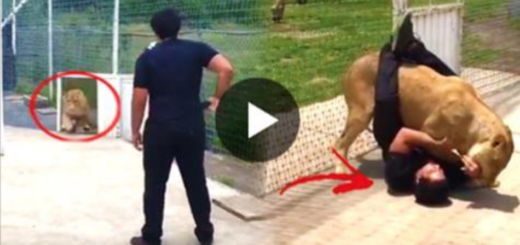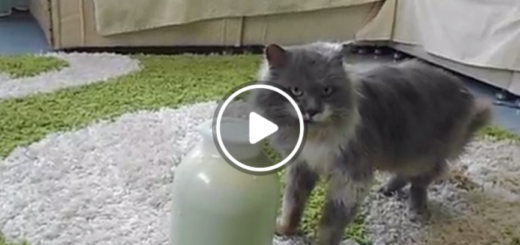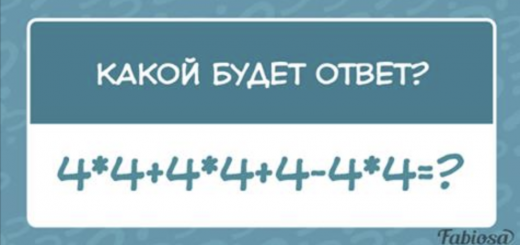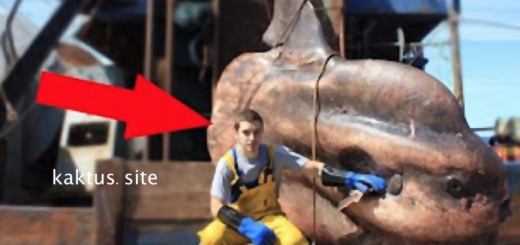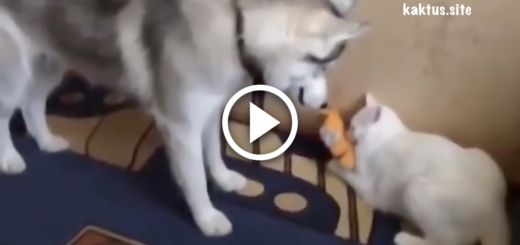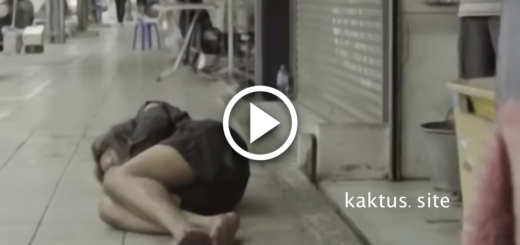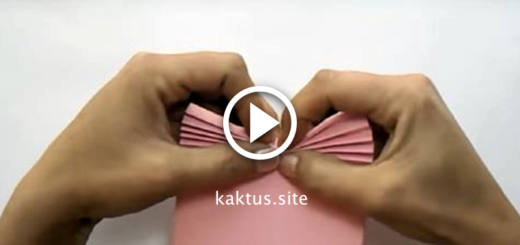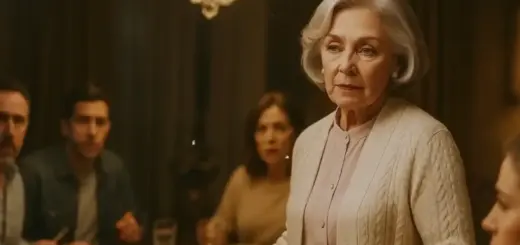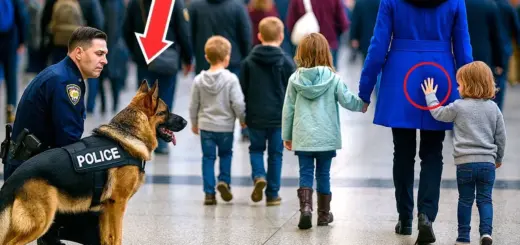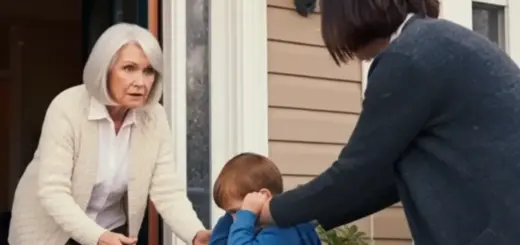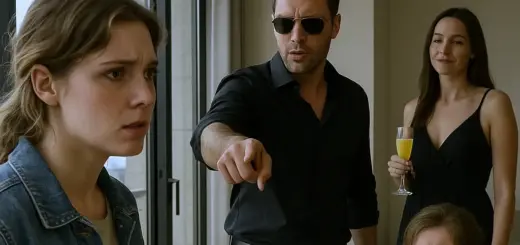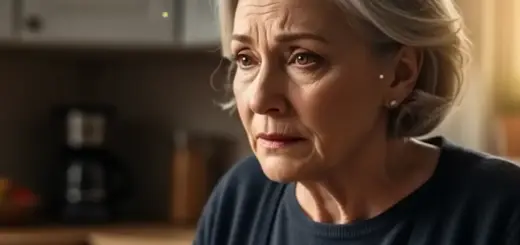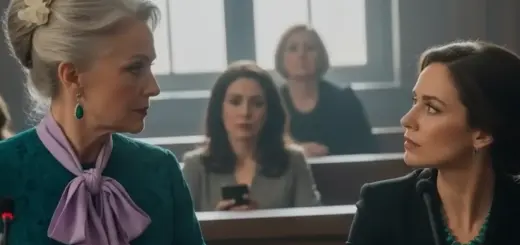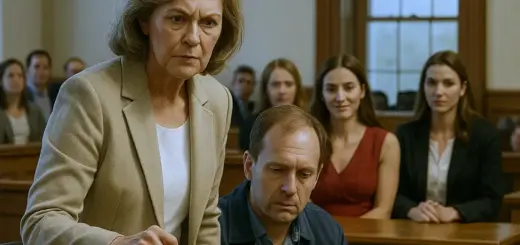No one ever noticed it was gone. I don’t know when the occasional sacrifices became the rhythm of my life. The lines blurred and I became the cushion, the safety net, the one who was always there to break their fall.
They built their lives on the foundation I provided, and they never once thought to look down and see who was holding them up. As I flipped through the documents in the folder, the boutique’s receipts, a decade’s worth of tuition payments, the loan agreements with my name written in neat, clear ink, a profound sadness washed over me. I had dreams once, bright and vibrant dreams of my own, and one by one I had traded them for theirs.
Iris never saw the cost of her ambitions, but I did, and in the quiet of my office, holding the proof of my silent sacrifices, I knew, with a certainty that was both heartbreaking and liberating, that I was done paying. The final request came, as they so often did, just after dessert. The dinner plates were still warm on the table, and the rest of the family was drifting out onto the patio, their glasses of wine catching the golden light of the setting sun.
Iris lingered behind, giving me a subtle nod toward the kitchen. I knew that look. It was the one she always wore just before she was about to ask for something, a practiced politeness that was her prelude to a transaction.
She leaned against the granite countertop, her arms crossed, the diamond on her finger flashing in the dim light. «I wanted to talk to you about something exciting,» she began, her voice light and airy. «The boutique is doing so well.»
«There’s an opportunity to lease the space next door. It would double our square footage. I’m thinking of adding a home goods line, maybe even skin care.»
«It’s the next logical step.» I listened, my expression unreadable, waiting for the other shoe to drop. «But,» she continued, her smile unwavering, «the bank wants a cosigner.»
«It’s just a formality, really. Seventy thousand. You know how these things work better than anyone.»
She said it as if it were a compliment, as if my financial acumen was a resource she was entitled to. «It would mean so much.» I looked at her then, at the familiar dance of her request, the carefully chosen words, the confident expectation.
I could already hear the silence that would follow if I said yes, the absence of gratitude, the slow, creeping amnesia that would erase my contribution. «I can’t do that, Iris,» I said, my voice even and calm. She blinked, a flicker of surprise in her eyes, then let out a short, disbelieving laugh.
«Why not? It’s not like you’re stretched thin. What do you even do all day?»
Just then, Caden walked into the kitchen, freezing near the sink as he took in the sudden tension in the room. He didn’t say a word, just picked up a dish towel and began to dry a glass that was already spotless.
I turned to face my daughter-in-law fully. «I spend my days exactly as I choose to,» I said, my voice still quiet but firm. «And I’m not cosigning.»
Her mouth opened, then snapped shut. She shot a desperate look at Caden, but he remained focused on his task, his back to us both. The silence stretched, thick and uncomfortable.
I offered a faint, sad smile and walked past them, out of the kitchen and toward the front door. There were no raised voices, no dramatic confrontation, just an answer that didn’t need to be repeated. As I stepped outside, the setting sun warmed my back.
I walked through the front gate without a backward glance, without saying goodbye, and went home to unlock the drawer. The key was in its usual place, hidden inside an old sewing tin that had belonged to my mother, tucked behind a row of old ledger books. I had half expected my hands to tremble, but they were perfectly steady.
I slid the bottom drawer open, the metal runners groaning under the weight of a decade of silent sacrifices. The folder was thick now, a tangible history of receipts, wire transfers, and notarized statements. Every page bore a name, sometimes mine, sometimes theirs.
But every single number represented a piece of me I had given away. Near the back of the folder was a contract from 2017. I remembered that time with a painful clarity.
Iris had been on the verge of panic. The boutique was failing, rent was overdue, and a supplier was threatening to sue. The phone call had been late at night, her voice ragged with a desperation she was trying to conceal.
Caden had already used up their meager savings. The bank had turned them down. I was her last resort.
I met her at a sterile diner off the highway, the kind of place where difficult conversations happen over lukewarm coffee. I had the contract with me, already printed and reviewed by a lawyer friend. I wasn’t being cruel.
I was being careful. If I was going to risk $60,000 of my retirement, I needed some security. She barely skimmed the document, her eyes darting over the legal language, her mind clearly elsewhere.
She signed where I indicated, her signature a rushed, jagged line. Then she slid the papers back across the table and let out a long, shuddering breath, like someone who had just been pulled from the water. I filed the contract away the next day and never mentioned it again.
Until now. The clause was clear, unambiguous. In exchange for a financial bailout of $60,000, Lenore H. Holstead would assume 52% ownership of The Gilded Fern, effective immediately.
It was legal, notarized, and quietly, indisputably, binding. She must have assumed I’d forgotten, or that I would never have the courage to use it. For a long time, she was right.
I had convinced myself that my silence was keeping the peace, that letting them live in their comfortable fiction was what held our family together. But peace cannot be built on a foundation of denial. I slipped the contract into a fresh envelope.
Tomorrow it would no longer be a secret hidden in a drawer. Tomorrow it would be a memory she could no longer afford to forget. I knew the moment I walked away from that dinner table that something had fundamentally changed.
It wasn’t a loud, dramatic explosion, but a quiet, internal shift, like the first crack in a sheet of ice. My simple, two-word answer, «I’m not,» had landed with the force of a judgment, and I had left before the pieces could shatter. The following three days were a study in silence, a heavy, expectant quiet that was a stark contrast to the constant, low-level hum of their needs that had become the background music of my life.
Then, on the fourth day, there was a knock at my door. It was Iris, her body rigid, her arms crossed tightly over her chest as if to hold herself together. Caden stood a step behind her, looking weary, his eyes pleading for a resolution before the conversation had even begun.
I opened the door wide, a silent invitation into my home. «Would you like some tea?» I asked, not out of a sense of hospitality, but from a need to anchor myself in the familiar, the ordinary. «We’re not here for tea,» Iris snapped, brushing past me into the living room she had so often graced but never truly seen.
Caden followed, his steps heavy with reluctance. I walked over to the sideboard where I had left the envelope. It wasn’t thick, but it was dense with the weight of years.
I handed it to Caden. He took it with a look of confusion, then opened the flap and began to read. I watched his face as his eyes moved across the pages, slowly at first, then with increasing speed.
I saw the color drain from his cheeks as he sifted through the evidence of my silent support, the wire transfers, the tuition receipts, and finally, the notarized contract from 2017. «Iris,» he said, his voice tight with a dawning horror. «Did you sign this?»
She barely glanced at the paper in his hand. «It’s exaggerated,» she said, her voice dripping with disdain. «She’s twisting things. That was years ago.»
«It’s your signature,» he countered, his voice flat, «and these numbers. Mom, these are real.» Iris crossed her arms again, her gaze as cold as ice.
«She’s using this to control us. That’s all this is.» I sat down in the armchair across from them, the familiar chintz of small comfort.
«No,» I said, my voice calm and steady. «I’m using it to stop being erased.» For the first time, Caden looked at me.
I mean, he truly looked at me, his eyes filled with a slow, dawning recognition, like someone realizing they’ve been shouting in an empty room. Iris, however, refused to meet my gaze. I hadn’t expected an apology and I didn’t ask for one.
I knew it would never come, but I had given them the folder. I had dragged everything out of the shadows and into the light. What they chose to do with the truth was no longer my burden to carry.
The silence that had settled between us cracked two days later, not with a quiet knock, but with the insistent, angry buzz of the doorbell being held down. I opened the door to find Iris already speaking, her words a torrent of accusation. «This is ridiculous,» she hissed, her face a mask of fury.
«You’re a parasite, clinging to something you never built.» I stood my ground, my expression calm. I did not flinch.
Caden was behind her again, his face etched with exhaustion. He looked as though he hadn’t slept in days. «Mom,» he began.
His voice was barely a whisper. «Can we please just talk? This isn’t worth destroying the family over.»
I waited, letting his words hang in the air. He rubbed his hands together, a nervous, fretful gesture. «Just sell your shares,» he pleaded.
«We’ll buy you out. You can walk away from this and we can put all this tension behind us.» I looked from my son’s weary face to my daughter-in-law’s defiant one.
«I didn’t ask for ownership, Caden,» I said, my voice even. «I never sought control. I stepped in when you had nowhere else to turn.»
«I cosigned, I funded, I rescued. And then, I stepped back and let you both take all the credit.» Iris opened her mouth to argue, but I held up a hand, a gesture that was both a plea for silence and a command.
«I wasn’t clinging,» I continued. «I was holding things together because I thought it mattered. Now that it seems it doesn’t, I am simply refusing to disappear.»
Caden shifted uncomfortably, his gaze falling to the floor. Iris just stared at me, her eyes hard, as if she could will me into feeling guilty. «I’m not selling my stake,» I said, the words clear and final.
«I am not going to erase my part in this story just to make you more comfortable.» Neither of them spoke. The silence that filled the space between us was different this time.

